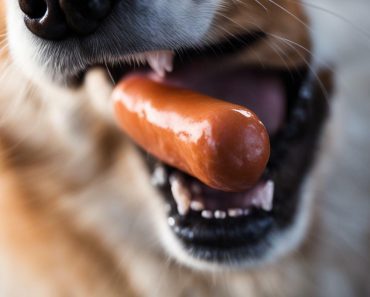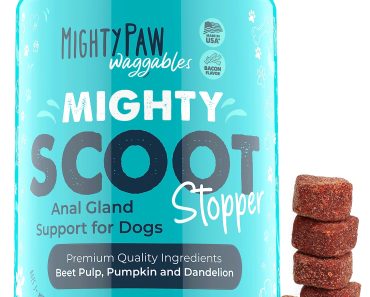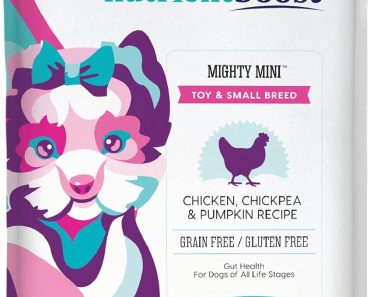
If you’re wondering, “Can dogs eat gingerbread cookies,” it’s important to understand the potential risks involved. While gingerbread cookies may be a delicious treat for humans, they can harm our furry friends. Traditional gingerbread recipes contain ingredients that can negatively affect dogs’ health, such as nutmeg, sugar, butter, and cinnamon.
- Gingerbread cookies are not safe for dogs to eat due to the ingredients they contain.
- Nutmeg, an ingredient in gingerbread cookies, is toxic to dogs and can cause seizures and hallucinations.
- Sugar in gingerbread cookies can lead to weight gain and an increased risk of diabetes in dogs.
- Butter, another common ingredient in gingerbread cookies, can cause digestive upset and pancreatitis in dogs.
- A dog eating gingerbread cookies may experience symptoms like vomiting, diarrhea, lethargy, trembling, seizures, or changes in behavior.
Instead of feeding gingerbread cookies to dogs, it is recommended to opt for safe and healthy alternatives. There are homemade and store-bought dog-friendly treats available that are specifically made to meet the nutritional needs of dogs. It’s vital to prioritize your dog’s health and make informed choices about their diet to ensure their well-being.
Remember, it’s crucial to consult with a veterinarian for personalized advice on your dog’s dietary needs. They can guide your pet and help you make the best choices regarding their nutrition and overall health.
Understanding the Ingredients in Gingerbread Cookies
Gingerbread cookies often contain ingredients that can be harmful to dogs if consumed. Traditional recipes include spices like nutmeg, cinnamon, sugar, and butter. While these ingredients may be harmless to humans, they can harm canine health. Dog owners must understand the potential risks of feeding their furry friends gingerbread cookies.

Nutmeg, in particular, is a common ingredient in gingerbread cookies that can be toxic to dogs. It contains myristicin, which can cause seizures, hallucinations, and other neurological issues in canines. Even small amounts of nutmeg can be harmful, so it’s best to avoid feeding gingerbread cookies to dogs altogether.
Sugar and butter are other ingredients commonly found in gingerbread cookies that can negatively impact a dog’s health. Sugar consumption can lead to weight gain and an increased risk of diabetes in dogs, while butter can cause digestive upset and even pancreatitis, a serious inflammation of the pancreas. These potential side effects underline the importance of avoiding gingerbread cookies in a dog’s diet.
The Dangers of Nutmeg
“Even small amounts of nutmeg can be harmful, so it’s best to avoid feeding gingerbread cookies to dogs altogether.”
If a dog consumes gingerbread cookies, they may exhibit various symptoms, including vomiting, diarrhea, lethargy, trembling, seizures, or changes in behavior. These signs should not be taken lightly, as they could indicate a serious health issue. It is crucial to seek veterinary assistance if these symptoms occur after a dog ingests gingerbread cookies.
Instead of feeding dogs gingerbread cookies, alternative treats are available that are specifically made with canine health in mind. Homemade options, such as ginger-flavored dog treats using safe-for-dog ingredients like pumpkin or peanut butter, can provide a tasty and safe alternative. Commercial dog-friendly treats on the market are specifically formulated to be nutritious and safe for dogs to enjoy.
Ultimately, dog owners need to prioritize their pet’s health by making informed choices about their dietary intake. Dog owners can help ensure their furry friends lead a long and healthy life by avoiding gingerbread cookies and opting for safer alternatives.
Nutmeg: A Dangerous Ingredient for Dogs
One of the main ingredients in gingerbread cookies, nutmeg, can be dangerous for dogs. Nutmeg contains myristicin, which can cause various symptoms in canines. Myristicin can affect a dog’s central nervous system when ingested, leading to seizures, hallucinations, and tremors. In some cases, it can even be life-threatening.
Dogs are more sensitive to the toxic effects of nutmeg compared to humans. While humans can safely consume small amounts of nutmeg without adverse effects, dogs can become ill from even a small taste. Therefore, it is crucial to keep nutmeg-containing foods, like gingerbread cookies, out of reach of your furry friends.

If you suspect your dog has ingested gingerbread cookies or any other food containing nutmeg, it is vital to seek veterinary care immediately. Your veterinarian can assess your dog’s condition, provide appropriate treatment, and help prevent potential complications. Remember, it’s always better to be safe than sorry about your pet’s health.
Gingerbread Cookies and Dog Health
“One of the main ingredients in gingerbread cookies, nutmeg, can be dangerous for dogs.”
To protect your dog’s health, it is best to avoid feeding them gingerbread cookies altogether. Instead, opt for safe and healthy alternatives specifically made for canine consumption. Numerous homemade and store-bought options are available that are delicious and safe for dogs to enjoy. These treats are typically made with dog-friendly ingredients and do not contain harmful substances like nutmeg, sugar, or butter.
Feeding your dog a balanced and nutritious diet is essential for their health and well-being. If you have any concerns or questions about your dog’s diet, it’s always a good idea to consult a veterinarian. They can provide personalized advice and recommend the best dietary choices for your furry friend.
Sugar and its Impact on Canine Health
Gingerbread cookies typically contain high amounts of sugar, which can negatively affect a dog’s health. Consuming too much sugar can lead to weight gain and increase the risk of diabetes in dogs. It can also contribute to dental issues like tooth decay and gum disease.
According to the American Kennel Club, dogs have different dietary needs than humans, and their bodies are not designed to process large amounts of sugar. Regularly feeding them sugary treats like gingerbread cookies can have long-term consequences for their well-being.
In addition to the potential health risks, feeding dogs sugary snacks can also create behavioral issues. A study published in Frontiers in Veterinary Science found that dogs who consumed a diet high in sugar had a higher likelihood of displaying hyperactive and aggressive behavior.
| Symptoms of Sugar Overconsumption in Dogs | Effects of Sugar on Canine Health |
|---|---|
|
|
If you want to treat your dog to something special, it is important to choose healthier alternatives that are specifically made for canine consumption. Various dog-friendly treats or recipes you can make at home are available in stores. These alternatives are often low in sugar and use safe and nutritious dog ingredients.
Remember, your dog’s diet is crucial to their health and well-being. By making informed choices and avoiding sugary treats like gingerbread cookies, you can help ensure your furry friend leads a happy and healthy life.

The butter found in gingerbread cookies can cause digestive upset for dogs. While butter may be a common ingredient in many human recipes, it is not well-suited for our furry friends. Dogs have a more sensitive digestive system, and consuming butter can lead to stomach discomfort, diarrhea, and even pancreatitis, a serious pancreas inflammation.
“The high-fat content in butter can overwhelm a dog’s digestive system,” explains Dr. Smith, a veterinarian at Pet Care Clinic.
“Ingesting butter can disrupt the balance of good bacteria in their gut, leading to digestive upset and potential inflammation.”
As responsible pet owners, it’s essential to prioritize our dogs’ health and well-being. While gingerbread cookies may be tempting to share during the holiday season, it’s best to avoid feeding them to our canine companions. Instead, opt for dog-friendly treats specifically formulated to meet their nutritional needs.

| Ingredient | Potential Harm to Dogs |
|---|---|
| Nutmeg | It can cause seizures and hallucinations |
| Sugar | Increases the risk of weight gain and diabetes |
| Butter | This can lead to digestive upset and pancreatitis |
By avoiding gingerbread cookies and other harmful ingredients, we can ensure our furry friends stay healthy and happy. Consult with your veterinarian for specific dietary advice and explore alternative, dog-friendly treats that satisfy their taste buds without compromising their well-being.
Recognizing the Symptoms of Gingerbread Cookie Consumption
A dog consuming gingerbread cookies may exhibit various symptoms that indicate a negative reaction. These symptoms can range from mild to severe and should be taken seriously. Dog owners must know these signs to seek medical attention for their furry friend if necessary.
One common symptom that dogs may experience after eating gingerbread cookies is vomiting. The dog may vomit shortly after consuming the cookies or within a few hours. This can be a sign that their body is trying to rid itself of the harmful ingredients found in gingerbread, such as nutmeg and sugar.
Another symptom to watch out for is diarrhea. Gingerbread cookies can cause digestive upset in dogs, leading to loose or watery stools. If the diarrhea persists for more than a day or is accompanied by other concerning symptoms, it is important to consult a veterinarian for further guidance.
In more severe cases, dogs may exhibit lethargy, trembling, seizures, or changes in behavior. These symptoms can indicate a serious reaction to the ingredients in gingerbread cookies and should be treated as a medical emergency. Immediate veterinary attention is crucial to ensure the dog’s safety and well-being.

It is always better to be cautious about our furry friends’ health. Instead of risking the potential harm gingerbread cookies can cause dogs, it is best to avoid feeding them these treats altogether. There are plenty of safe and healthy alternatives available that are specifically made with canine health in mind. By choosing these alternatives, we can ensure our dogs enjoy their treats without risking their well-being.
Safe Alternatives to Gingerbread Cookies for Dogs
Rather than feeding your dog gingerbread cookies, plenty of alternative treats are available that are both safe and nutritious. These treats can satisfy your dog’s cravings for something tasty without compromising their health. Here are some options to consider:
- Carrot Sticks: Carrots are low in calories and fiber, making them a healthy dog snack. They are also great for promoting dental health as they help clean your dog’s teeth and freshen their breath.
- Peanut Butter Treats: Dogs love the taste of peanut butter, and many dog-friendly peanut butter treats are available on the market. Look for treats made with natural ingredients without added sugars or artificial additives.
- Frozen Yogurt Bites: Plain, unsweetened yogurt can be a tasty and refreshing dog treat. Freeze small portions of yogurt in ice cube trays and give them to your dog as a cool summer snack.
- Apple Slices: Apples are a good source of vitamins and minerals for dogs. Just remove the seeds and core before giving your dog a slice.
Remember, when introducing new treats to your dog, it’s important to do so gradually and in moderation. Always consult your veterinarian before making any changes to your dog’s diet, especially if they have any specific dietary restrictions or health conditions.
Table: Safe Alternatives to Gingerbread Cookies
| Treat | Benefits |
|---|---|
| Carrot Sticks | Low in calories, high in fiber, promotes dental health |
| Peanut Butter Treats | Dogs love the taste, natural ingredients, no added sugars or artificial additives |
| Frozen Yogurt Bites | It is tasty and refreshing, a great summer snack |
| Apple Slices | Source of vitamins and minerals, remove seeds and core before feeding |
Instead of gingerbread cookies, there are plenty of safe and nutritious alternatives your dog can enjoy. Stick to treats specifically made for dogs, and always check the ingredients to ensure their safety. Remember, a healthy diet is essential for your dog’s overall well-being, so choose their snacks wisely.

If you enjoy baking, try these homemade dog-friendly treat recipes inspired by gingerbread cookies. These recipes use safe and nutritious ingredients to delight your four-legged friend without posing any harm. Remember that these treats should still be in moderation as part of a balanced diet.
Recipe 1: Gingerbread Biscuits
| Ingredients | Instructions |
|---|---|
|
|
Recipe 2: Carob Gingerbread Bites
| Ingredients | Instructions |
|---|---|
|
|
Remember, these treats are meant to be enjoyed in moderation and should not replace a balanced diet. It’s always a good idea to consult with your veterinarian before introducing new treats into your dog’s diet, especially if they have any underlying health conditions or dietary restrictions. Enjoy baking these dog-friendly treats, and have fun pampering your furry friend!

Prioritizing your dog’s health means being mindful of their diet choices, including avoiding gingerbread cookies. While these festive treats may be tempting to share with your furry friend, it’s essential to understand the potential risks they pose to dogs’ overall well-being.
Traditional gingerbread recipes often contain ingredients that can be harmful to dogs. Nutmeg, a common spice found in gingerbread cookies, is toxic to canines and can lead to seizures and hallucinations. Sugar, another key ingredient, can contribute to weight gain and increase the risk of diabetes in dogs. Often used for its rich flavor, butter can cause digestive upset and even pancreatitis in dogs.
If a dog consumes gingerbread cookies, they may experience various symptoms, including vomiting, diarrhea, lethargy, trembling, seizures, or changes in behavior. These signs are indications that their body is reacting negatively to the ingredients in gingerbread. Seeking veterinary assistance is crucial if these symptoms occur, as a professional can provide appropriate guidance and treatment.
Instead of offering your dog gingerbread cookies, plenty of safe and healthy alternatives are available. Homemade dog-friendly treats can be made using pet-friendly ingredients, eliminating the harmful components found in traditional gingerbread recipes. Additionally, many pet stores offer various commercially produced dog treats specifically formulated to meet canine dietary needs. These alternative treats can provide flavor and enjoyment without compromising your pet’s health.
Remember, dogs rely on their owners to make informed choices when it comes to their diet. By avoiding gingerbread cookies and selecting safe alternatives, you can prioritize your dog’s health and contribute to their long-term well-being.
| Treat Options | Benefits |
|---|---|
| Homemade dog-friendly treats | Made with pet-friendly ingredients, eliminating harmful components |
| Commercially-produced dog treats | Specifically formulated to meet canine dietary needs |
Quote:
“Dogs rely on their owners to make informed choices when it comes to their diet.”
Choose the best option for you and your dog, and always consult a veterinarian for personalized advice on your pet’s specific dietary needs. By prioritizing your dog’s health and making conscious decisions about their food, you can actively contribute to their overall well-being.

It’s always a good idea to consult a veterinarian for specific advice regarding your dog’s diet and any concerns related to gingerbread cookies. Veterinarians are highly knowledgeable about dogs’ dietary needs and sensitivities and can provide guidance tailored to your pet.
When it comes to gingerbread cookies, a vet will likely advise against feeding them to your dog. Traditional gingerbread recipes often contain ingredients harmful to canines, such as nutmeg, sugar, butter, and cinnamon. Nutmeg, in particular, is toxic to dogs and can cause seizures and hallucinations.
Sugar, another common ingredient in gingerbread, can lead to weight gain and an increased risk of diabetes in dogs. Additionally, butter can cause digestive upset and even pancreatitis in some cases. Therefore, it is best to avoid giving gingerbread cookies to your furry friend.
Instead, veterinarians can offer alternative treatment options that are safe and healthy for dogs. There are homemade recipes available that mimic the flavors of gingerbread cookies without the harmful ingredients. Additionally, many pet stores offer various dog-friendly treats specifically made to meet canine dietary needs.

Remember, every dog is different, and what works for one may not work for another. That’s why it’s crucial to consult your vet for personalized advice. They can assess your dog’s needs, consider existing health conditions, and guide your furry friend on the best diet and treats.
Conclusion
To ensure the health and well-being of your furry companion, it’s best to avoid feeding them gingerbread cookies. Traditional gingerbread recipes contain ingredients harmful to dogs, such as nutmeg, sugar, butter, and cinnamon. Nutmeg, in particular, is toxic to dogs and can cause seizures and hallucinations. Sugar can lead to weight gain and an increased risk of diabetes, while butter can cause digestive upset and pancreatitis.
If a dog consumes gingerbread cookies, they may experience various symptoms, including vomiting, diarrhea, lethargy, trembling, seizures, or changes in behavior. These signs of distress should not be taken lightly, and it is important to seek veterinary assistance if any of these symptoms occur.
Fortunately, there are safe alternatives available for dogs to enjoy. Homemade and store-bought dog-friendly treats are specifically made with their health in mind, providing a tasty and nutritious option. You can avoid the potential risks of harmful ingredients by opting for these alternatives instead of giving your dog gingerbread cookies.
In conclusion, it is crucial to prioritize the well-being of your canine companion by making informed choices about their dietary intake. Gingerbread cookies are unsafe for dogs, and their consumption can negatively affect their health. By consulting with a veterinarian for personalized dietary advice and offering safe and healthy alternatives, you can ensure your furry friend receives the nutrition they need to thrive.
FAQ
Can dogs eat gingerbread cookies?
No, gingerbread cookies are not safe for dogs to eat.
Why are gingerbread cookies harmful to dogs?
Traditional gingerbread recipes contain nutmeg, sugar, butter, and cinnamon, which can harm dogs if ingested.
What are the specific dangers of nutmeg for dogs?
Nutmeg is toxic to dogs and can cause seizures and hallucinations if consumed.
What are the potential risks of sugar for dogs?
Sugar can lead to weight gain and diabetes in dogs.
How does butter affect a dog’s digestive system?
Butter can cause digestive upset and pancreatitis in dogs.
What symptoms may occur if a dog eats gingerbread?
If a dog eats gingerbread, they may experience vomiting, diarrhea, lethargy, trembling, seizures, or changes in behavior.
Are there safe alternatives to gingerbread cookies for dogs?
Yes, homemade and store-bought dog-friendly treats are available that are safe for dogs to enjoy.
Can you provide some recipes for homemade dog-friendly treats?
Yes, we will provide recipes for homemade dog-friendly treats that mimic the flavors of gingerbread cookies without the harmful ingredients.
Why is it important to prioritize canine health?
Maintaining a healthy diet is crucial for dogs’ well-being and long-term health.
Should I consult a veterinarian for dietary advice?
It is important to consult with a veterinarian for personalized advice on your dog’s dietary needs.






